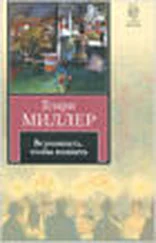“Do you think the kid would let me carry him, you look all in, Henrietta?” He inquired.
The women were a little surprised when Pedro meekly acquiesced to being gently disentangled from Henrietta De L’Isle’s arms.
They set off again.
In the full light of the morning the three adults and the child cut a dusty, weary, rather sorry sight as they trudged across the narrow ancient, hump-backed stone bridge into Puente de Congosto on the western bank.
“Bow your heads, don’t make eye contacts!” Melody hissed.
The village was no more than a collection of sun-bleached stone houses on the western slope of the valley clustered beneath a ruined castle and a plain, square-towered church. The streets were cobbled. Here and there women were brushing dust away from the doors to houses, or a cart drawn by a donkey rumbled noisily past the strangers who were careful to step over and around that day’s deposits of dung underfoot. The remnants of the Puente de Congosto’s medieval walls were visible here and there between the one and two storey houses, many of which looked derelict. The scent of fresh baked bread wafted into the sham pilgrim’s faces.
Melody felt a little faint.
She kept walking up the hill towards the church.
The bridge had been too narrow to allow a motorized vehicle any larger than a cycle access. No car could negotiate the streets of the village, even though she knew the settlement must lie across the path of the medieval road between Ávila and Ciudad Rodrigo.
The lichen eroded stone by the gate at the top of the village said: Nuestra Señora de la Asunción .
The Church of Our lady of the Assumption .
The place looked like it had been abandoned years ago.
The door, a gnarled, still very sound, oaken construct was locked.
Melody thought about knocking on it, decided it was a waste of time and energy that she no longer had. Instead, she sat down on the well-worn, smoothed step of the ages. Resisting the urge to bury her face in her hands she smiled wanly at the others, inviting them to sit with her.
I need to think this through…
Henrietta leaned against her and she put her arm about her shoulders. The Sun had broken through the high clouds, splashing them with its pale morning warmth.
Melody tried to organise her thoughts.
Four strangers in a place like this; people will talk.
We must have walked past the village pump; an old walled village like this must have a pump…
The place has a bakery; we will have to beg…
A shadow passed across her.
Melody blinked, looked up into the kindly, perceptive eyes of a heavily bearded man of indeterminate middle years in a brown habit. The man pushed back his hood.
“You were seen on the riverbank,” he said in an accent which sounded vaguely Aragonese to Melody’s well-tuned ear.
She made no attempt to mimic it.
In her head the backstory was all about her, her brother, his wife and their surviving child from Mérida. They were walking the Way of St James after the rest of their extended family had been taken from them by the well-publicised, even in the Government-controlled Spanish press, outbreak of small pox, escaping the confusion of a city and a region briefly quarantined from the rest of the country on account of the typhus and cholera which had followed hard on the heels of the pox. It happened that the town of Mérida, in distant Extremadura, some miles from the recently nominated provincial capital of Badajoz, was a place known to her from her time in Spain as a child, an essential thing if she was to speak with confidence and substantiate what was at best, a tenuous back story…
“We walk the Way of St James, Padre,” she said, struggling to her feet and genuflecting with the ineptness of one who is afraid one’s legs will buckle beneath one.
“I am Brother Mariano,” the priest said. “I live among my flock in the village. I pray with my brothers and sisters in this church. A Holy Father visits us when he may.” He eyed Melody and her companions thoughtfully. “These are dangerous times for pilgrims.”
“My brother and his wife, and I, gave all our earthly possessions to the Mother Church before the ‘trouble’ in Madrid, and other places, began. It matters not to us…”
“No, no, of course not. They say that there is fighting only a few miles from here, in Barca?”
“We heard distant thunder in the night,” Melody shrugged. “Last night we went down to the river to quench our thirst,” she glanced to Albert Stanton who held Pedro in his arms again, “our only worry is for my nephew. He must have clean water, and we have no bread to give him…”
“They say that there are bandits in this country. It is not safe to walk the Way at present.”
“We have nothing for bandits to steal.”
Brother Mariano did not belief she was that naïve.
“There is always something precious that bandits may steal from the women they come upon.”
“I have promised myself to God after we have walked the Way,” Melody said defiantly, as if this answered each and every question.
The man did not press the issue.
He seemed to come to a decision.
“I don’t know how,” he said regretfully, “but you should know that the Inquisition in Salamanca knows to look for two women with shaven heads dressed like boys.”
Melody gawped at him.
The others opened their mouths to ask questions which froze upon their lips.
Brother Mariano held up his hands.
“Fear not. You are among friends. We can hide you for a day, maybe two but then you must move on again.”
Thursday 6th April
Little Inagua Island, West Indies
Surgeon Lieutenant Abraham Lincoln, RNAS, gently dripped brackish water from the one surviving canteen into Sub-Lieutenant Ted Forest’s mouth, careful not to waste a single drop. He had drunk his fill at the rain pool – well, more of a puddle – he had found the best part of a mile inland, knowing that his friend needed every molecule of life-preserving moisture he could cart back to him.
He doubted if he had slept more than an hour or so last night. The pain from his shoulder wound, the biting cold each time the wind sheered to the west, and his anxiety to keep Ted warm, protected, had made real sleep impossible.
His head hurt, more sometimes than others and bouts of dizziness came and went. No more than concussion, he hoped.
At first light he had stumbled back to the wreck of the Sea Fox, maddeningly hampered by his virtually immobile left arm – wound inflammation had swollen everything around the injury in place, the body’s way of telling a chap not to move the afflicted limb – and fumbled around for whatever was left of the second, pilot’s emergency medical kit. Yesterday, he had focused on the intact box still miraculously intact in the observer-gunner-navigator’s rear cockpit.
A couple of times he had walked past something dull black and sticking up out of the sand. It looked like one of the small bombs they had dropped on that German cruiser…
His memory was not working too well, forgot the damned thing was there as soon as he moved on. Probably, because a bomb was no damned use to him or Ted Forest.
He had retrieved more bandaging, a small tub of what he hoped was sulphonamide powder, and to his disbelief two more intact morphine ampoules. He would have danced a joyous jig had he not passed out shortly after the discovery, coming around again some minutes later wondering what had happened. That morning everything was moving in hurtful slow motion. His head ached angrily, his left shoulder throbbed with hammer-like persistence and just walking was an exhausting effort. If he had not had to look after Ted he might easily have given up; lain on the sandy coral beside the wreck of the Sea Fox and surrendered to the inevitable.
Читать дальше












